“Men would incessantly challenge the worth of them getting a page,” says Christine D’Onofrio in an exhausted yet lively tone. Over drinks, the Vancouver-based artist and educator is sharing her experience in facilitating her city’s chapter of the Art + Feminism Wikipedia Edit-a-thon for four consecutive years, along with the frustrations of trying to make the user-generated online encyclopaedia more representative. “This was further exacerbated by Wikipedia rules on what would count as a legitimized source from which to pull citations,” she adds about the openly editable and viewable ‘wiki’, where 84-91 percent of editors are male.
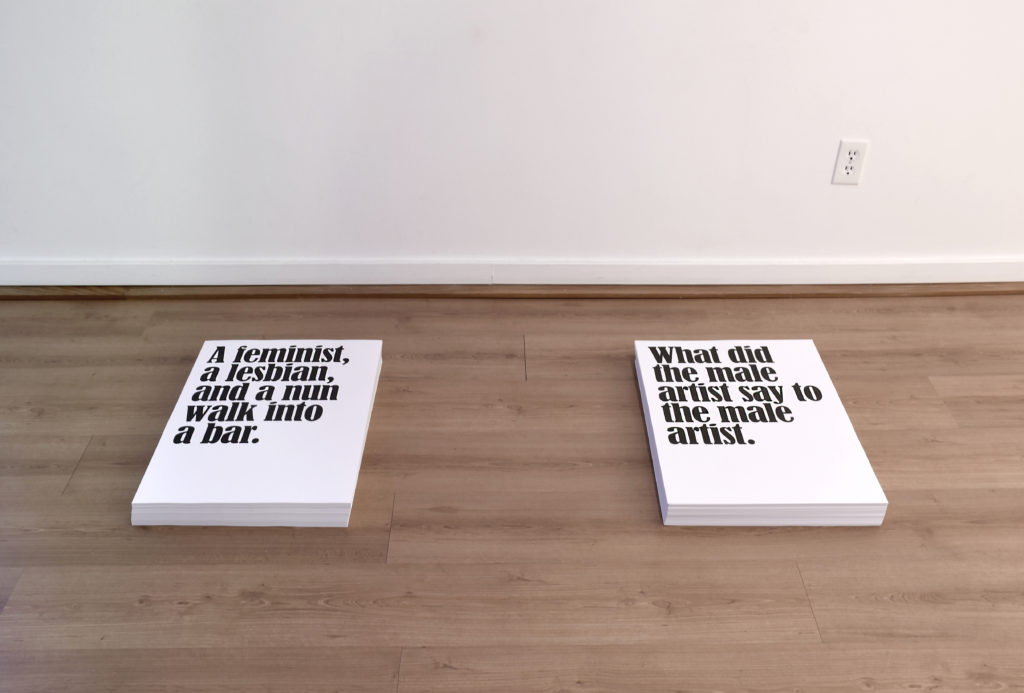
“I realized that the oppressions that deny marginalized artists a space to enact their influence was mimicked online and old patriarchal value systems of notoriety were further perpetuated,” notes D’Onofrio, discussing the drive behind ‘Intuition Commons‘. The online project is a rhizomatic website that acts as a fluid, inclusive and ever-expanding platform that aims to archive the work made and influenced by women-identified, trans and non binary artists. It was first premiered at the University of British Columbia’s Morris and Helen Belkin Art Gallery as an interactive physical installation in Beginning with the Seventies: Collective Acts, which ran September to December 2018. Curated by Lorna Brown, the group exhibition was part of a year-long series of events titled Reactivating: Arts and Archives, which looked at “generating knowledge through unconventional means” and unpicking the bias behind validation.
The concept of what constitutes a legitimate source of knowledge is ever-shifting. Facilitating a space for creative practices that lie outside of conventional citations, the open access archive explores pragmatic ways to purge the canon, gathering contributions that “articulate or address the intuitive, affective traces or tacit links that have informed creative output and ways of being in the world.” With the aim of creating a space that spreads and grows through its own pathways, each submission must include a ‘call out’ to another artist who influenced them, which in turn invites them to contribute.
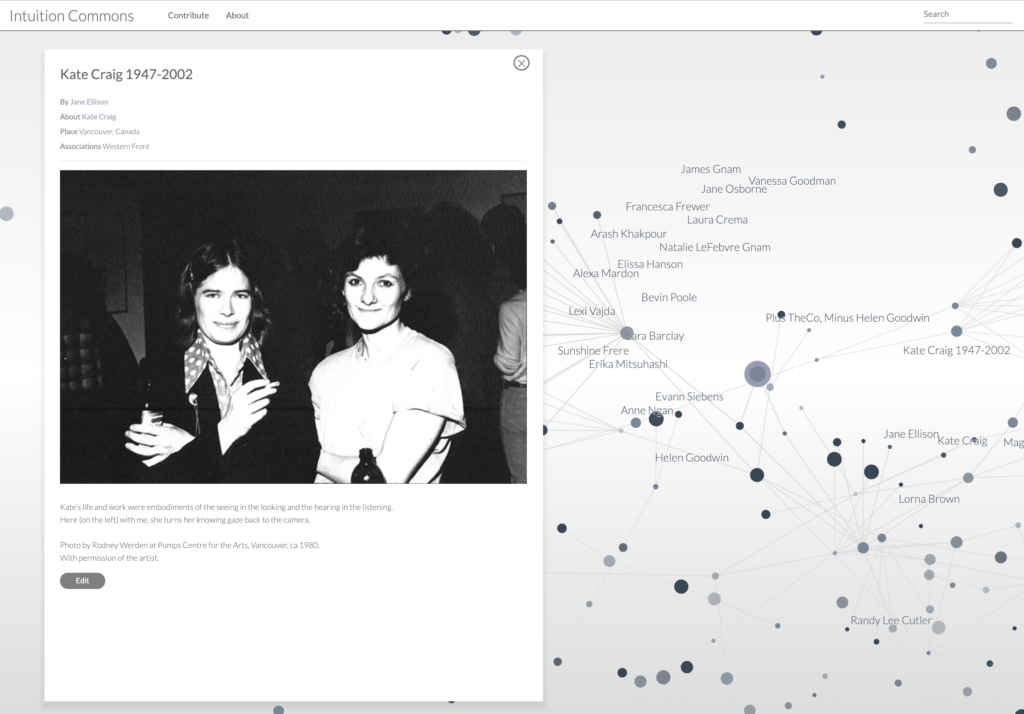
This flow of influence is an important aspect of D’Onofrio’s work which — in one way or another — is always engaging in conversation with previous feminist artists what she calls, “working with underground implications and suggestions of how to find liberty in oppressive power systems.”
**Increasingly, the internet functions just like IRL, they have come to mirror each other — good bits, bad bits, revolutionary potential, infinite abuse, limitless, limiting. Correct me if you hate this word, but the project feels optimistic, like a form of pragmatic activism as opposed dissatisfied critique.
Christine D’Onofrio: I hope to bring a productive optimism, a next step of action to hopefully realize and materialize something new. I agree that whether good or bad, the internet has the potential to be a democratic space, allowing for new voices and ways of knowing beyond dominant conventional structures. This was also a hopeful potential to me having grown up in the beginning of the internet, and yet I was not seeing it being used that way, or at least not enough. So I decided to build it. I wanted to hijack the online database format to allow an archive of more intuitive, tacit acts and links by which many female, women-identified, trans and non-binary cultural contributors communicate and connect. I also wanted an archive that could hold many formats such as text, images, video or sound, and of various styles, such as poetics, abstractions, letters, memories, moments, thoughts or narratives. I had to build it in a way that would articulate a community that links and connects, rather than a hierarchy that formalizes power, so that is why it is visually executed in a rhizomatic format.
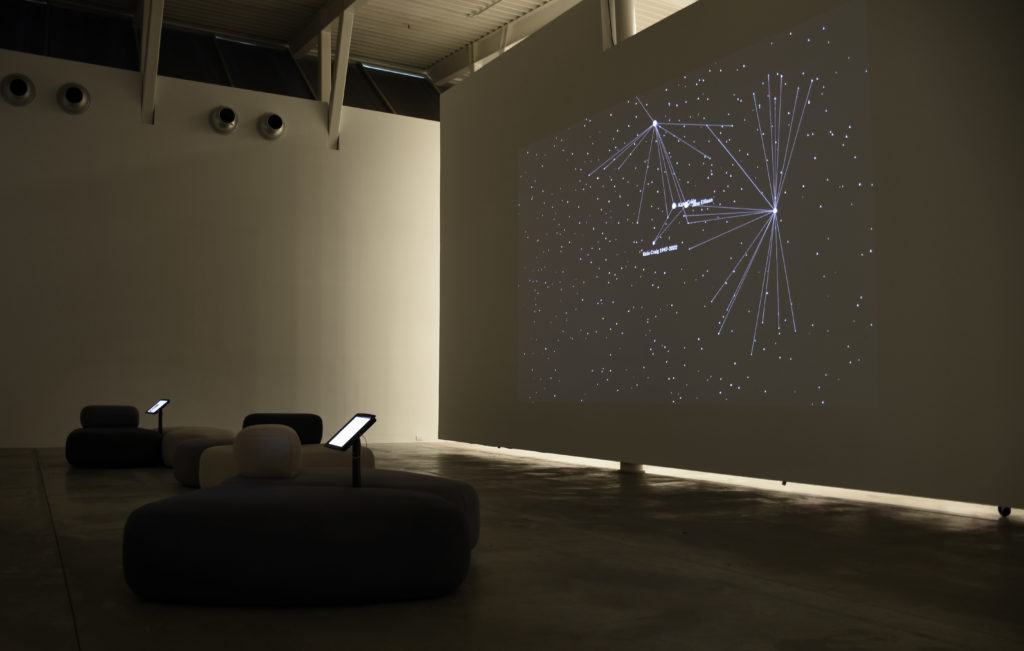
**I love that about the project — that it invites these small moments, the whisper holding a weight of its own. I actually think this is a really important aspect because a lot of larger scale projects involve funding, support and time that not a lot of under-represented artists have access to. This allows for a more fluid and honest portrayal of the movement between conversations happening across networks.
CD: It was important for me to not only make a space that would allow for these kinds of moments and connections to be archived and recorded, but that it would be a generative space of subtle acts coming together into a larger constellation of meanings and forces, a new way of seeing revolutionary action. When designing the interface, I was inspired by communities such as Occupy, a leaderless vision which can handle — and actually thrives on — a multiplicity of viewpoints. It’s a community that respects what each perspective offers, recognizes intersectionality, and produces alternatives in a unique and ever-evolving progression. There is no single way of reaching what any one element demands; there is always a surplus, or multiple potentials.
**Yeah, tapping into new methods to actually ‘purge’ ourselves from the canon. This feels very related and interconnected with being on the education side of art.
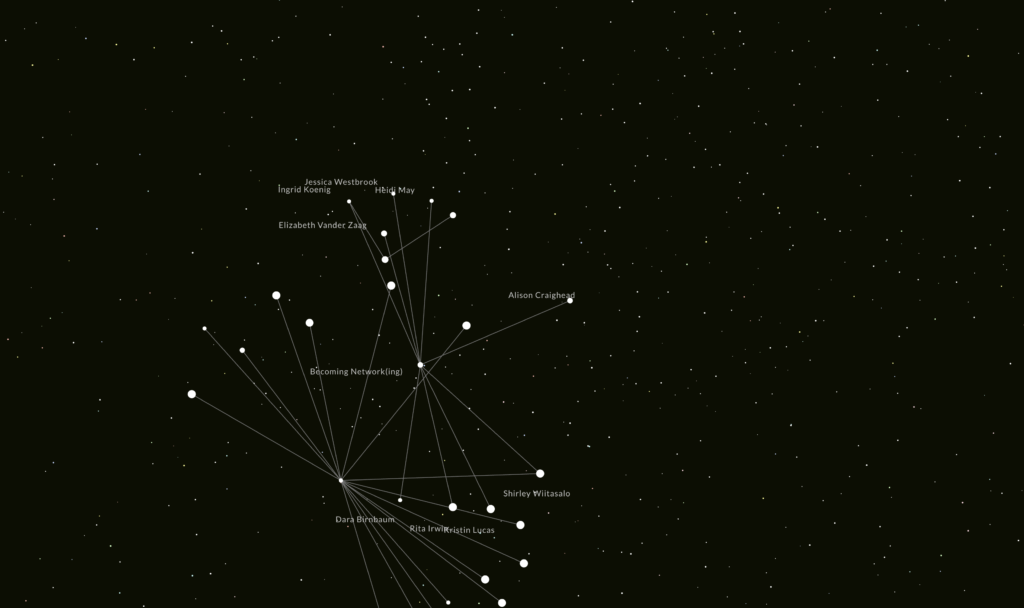
CD: My teaching practice has certainly influenced my artistic practice — and vice versa. Both involve questioning how we know how to dismantle it and how to make space and methods for new knowledge production, to go beyond consuming what is out there and instead to develop a literacy of relationships, connections and interactions, emphasizing difference and diversity. In my class curriculum I expand beyond merely teaching canonized texts (what some call decolonizing curriculum). I also set the conversation into ‘real’ practices and directions happening in the community, and inviting the knowledge of the community into academia. This allows for critical dissection, and expands to produce new knowledges and perspectives s that are not necessarily ‘published’ yet, or perhaps found in more niche sources, like AQNB.
**It’s hard to explore new ‘knowledge production’ when there is such an ingrained standard to work towards and maintain, i.e. professionalism, where your aesthetic and concept demonstrate a knowing of the canon within which it has been produced. In rejection or reaction to this, the ‘intuitive’ and ‘tacit’ hold so much potential for radical, big change. I think in a way, the majority of my research and creative activity has taken place online, where ‘accidental’ connections are made through the cosmic workings of the algorithm, or where small acts of immediacy (posting) allow you drop thoughts and offerings more effortlessly. Do you think this project is actively looking to reclaim something, or would you consider it a love letter to peripheral moments?
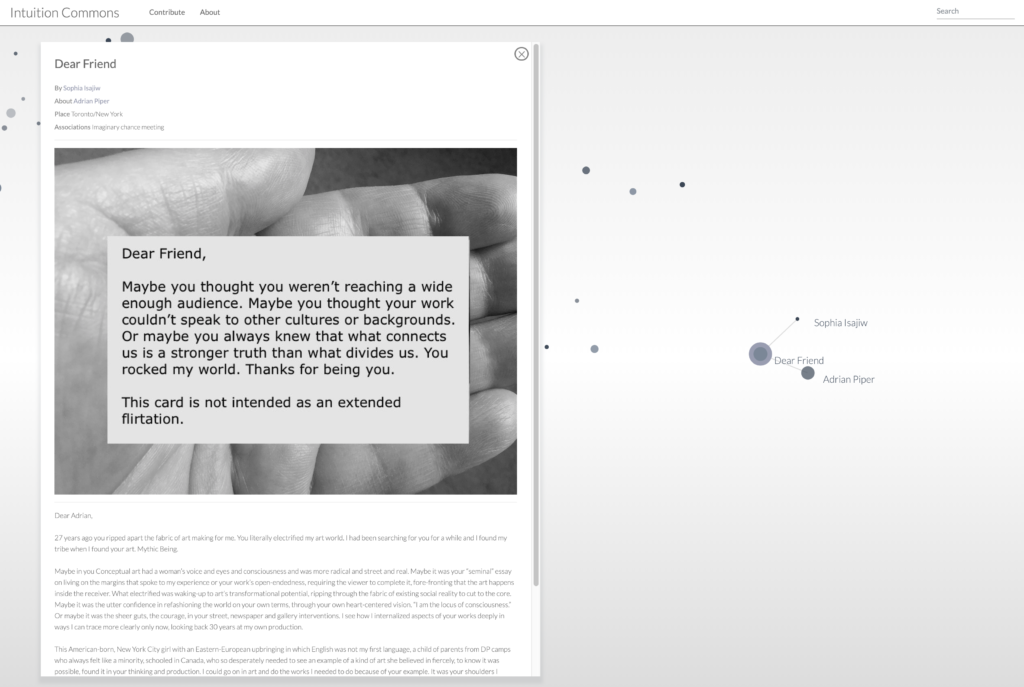
CD: That’s an interesting conundrum. I guess I am hoping that they aren’t mutually exclusive. But I also hope we can allow for a state in which the reclaiming is never-ending; we are ever-evolving to new conditions that can change our trajectory and give us entirely new ideas to negotiate and work through. It’s unfortunate that humans can’t be comfortable with continuous change, we’d rather have just about anything to settle on as the ‘stable’ than to live in questioning. That feels like ‘failure’ because we want a right answer, a model out there just so that we can say, “Hey, I got it right because it matches what’s in this textbook!” I’d rather fail because I’m trying to do something new than succeed because I match what is already accepted.
The internet definitely gives us an arena where we are able try things out and take more risks in our mass circulation of ideas and objects. But if everything matters, nothing matters, and so there are other forces at play that create narratives for us. I do worry about how algorithms using our creative work as artifacts in a database will just further stabilize/organize/measure a predictability of humans. I like to think that we have the capacity to fray, to be unpredictable, and this can lead to revolutionary thinking. If machines are assessing and contributing more and more to the critical and creative work of humans, can unpredictable, nonsensical threads for some strange peripheral or fringe purposelessness (but to just see what would happen if we broke a rule) ever be coded into machine thinking? I know they are getting closer, but is it even possible to code imagination? It’s not even easy for humans to access imagination!
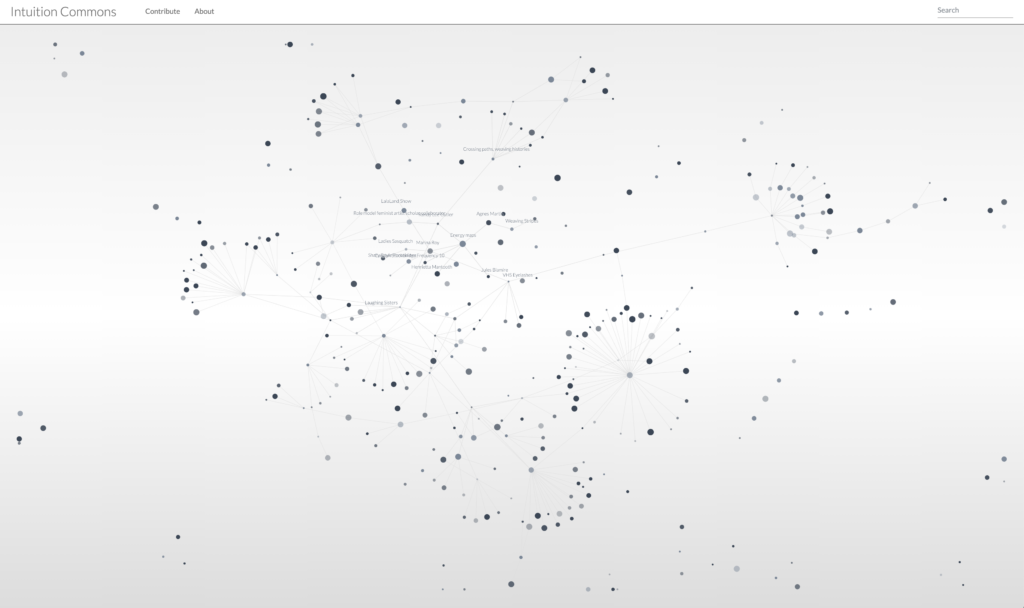
**Purposelessness — my favourite thing to discuss 🙂 I do love that this project is essentially a website where you have to wait and see what happens rather than have strict curatorial control over its outcome. You’re not really searching, seeking or actively advertising, but providing a starting point for the synapses. It almost exists in the potential, what could be — its own growth being the thing that creates new pathways, narratives…
CD: I hope so, and that even in the multiplicity of difference we can contribute and thus find a new ontology and ethics of community, or at least the possibility that it could exist this way. I’m optimistic! But I guess we’ll have to wait and see what will transpire…**













